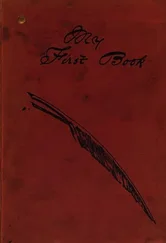Jerome Jerome - Novel Notes
Здесь есть возможность читать онлайн «Jerome Jerome - Novel Notes» весь текст электронной книги совершенно бесплатно (целиком полную версию без сокращений). В некоторых случаях можно слушать аудио, скачать через торрент в формате fb2 и присутствует краткое содержание. Жанр: Юмористическая проза, Классическая проза, на английском языке. Описание произведения, (предисловие) а так же отзывы посетителей доступны на портале библиотеки ЛибКат.
- Название:Novel Notes
- Автор:
- Жанр:
- Год:неизвестен
- ISBN:нет данных
- Рейтинг книги:5 / 5. Голосов: 1
-
Избранное:Добавить в избранное
- Отзывы:
-
Ваша оценка:
- 100
- 1
- 2
- 3
- 4
- 5
Novel Notes: краткое содержание, описание и аннотация
Предлагаем к чтению аннотацию, описание, краткое содержание или предисловие (зависит от того, что написал сам автор книги «Novel Notes»). Если вы не нашли необходимую информацию о книге — напишите в комментариях, мы постараемся отыскать её.
Novel Notes — читать онлайн бесплатно полную книгу (весь текст) целиком
Ниже представлен текст книги, разбитый по страницам. Система сохранения места последней прочитанной страницы, позволяет с удобством читать онлайн бесплатно книгу «Novel Notes», без необходимости каждый раз заново искать на чём Вы остановились. Поставьте закладку, и сможете в любой момент перейти на страницу, на которой закончили чтение.
Интервал:
Закладка:
"I darted to the door and pretended to look in. 'She's fallen asleep,' I whispered, closing it; and he said nothing, but his eyes looked queerly at me.
"That night, Jeanie and I stood in the hall talking. He had fallen to sleep early, and I had locked the door between the two rooms, and put the key in my pocket, and had stolen down to tell her what had happened, and to consult with her.
"'What can we do! God help us, what can we do!' was all that Jeanie could say. We had thought that in a day or two he would be stronger, and that the truth might be broken to him. But instead of that he had grown so weak, that to excite his suspicions now by moving him or her would be to kill him.
"We stood looking blankly in each other's faces, wondering how the problem could be solved; and while we did so the problem solved itself.
"The one woman-servant had gone out, and the house was very silent―so silent that I could hear the ticking of Jeanie's watch inside her dress. Suddenly, into the stillness there came a sound. It was not a cry. It came from no human voice. I have heard the voice of human pain till I know its every note, and have grown careless to it; but I have prayed God on my knees that I may never hear that sound again, for it was the sob of a soul.
"It wailed through the quiet house and passed away, and neither of us stirred.
"At length, with the return of the blood to our veins, we went upstairs together. He had crept from his own room along the passage into hers. He had not had strength enough to pull the sheet off, though he had tried. He lay across the bed with one hand grasping hers."
My nurse sat for a while without speaking, a somewhat unusual thing for her to do.
"You ought to write your experiences," I said.
"Ah!" she said, giving the fire a contemplative poke, "if you'd seen as much sorrow in the world as I have, you wouldn't want to write a sad book."
"I think," she added, after a long pause, with the poker still in her hand, "it can only be the people who have never KNOWN suffering who can care to read of it. If I could write a book, I should write a merry book―a book that would make people laugh."
CHAPTER IX
The discussion arose in this way. I had proposed a match between our villain and the daughter of the local chemist, a singularly noble and pure-minded girl, the humble but worthy friend of the heroine.
Brown had refused his consent on the ground of improbability. "What in thunder would induce him to marry HER?" he asked.
"Love!" I replied; "love, that burns as brightly in the meanest villain's breast as in the proud heart of the good young man."
"Are you trying to be light and amusing," returned Brown, severely, "or are you supposed to be discussing the matter seriously? What attraction could such a girl have for such a man as Reuben Neil?"
"Every attraction," I retorted. "She is the exact moral contrast to himself. She is beautiful (if she's not beautiful enough, we can touch her up a bit), and, when the father dies, there will be the shop."
"Besides," I added, "it will make the thing seem more natural if everybody wonders what on earth could have been the reason for their marrying each other."
Brown wasted no further words on me, but turned to MacShaughnassy.
"Can YOU imagine our friend Reuben seized with a burning desire to marry Mary Holme?" he asked, with a smile.
"Of course I can," said MacShaughnassy; "I can imagine anything, and believe anything of anybody. It is only in novels that people act reasonably and in accordance with what might be expected of them. I knew an old sea-captain who used to read the Young Ladies' Journal in bed, and cry over it. I knew a bookmaker who always carried Browning's poems about with him in his pocket to study in the train. I have known a Harley Street doctor to develop at forty-eight a sudden and overmastering passion for switchbacks, and to spend every hour he could spare from his practice at one or other of the exhibitions, having three-pen'orths one after the other. I have known a book-reviewer give oranges (not poisoned ones) to children. A man is not a character, he is a dozen characters, one of them prominent, the other eleven more or less undeveloped. I knew a man once, two of whose characters were of equal value, and the consequences were peculiar."
We begged him to relate the case to us, and he did so.
"He was a Balliol man," said MacShaughnassy, "and his Christian name was Joseph. He was a member of the 'Devonshire' at the time I knew him, and was, I think, the most superior person I have ever met. He sneered at the Saturday Review as the pet journal of the suburban literary club; and at the Athenaeum as the trade organ of the unsuccessful writer. Thackeray, he considered, was fairly entitled to his position of favourite author to the cultured clerk; and Carlyle he regarded as the exponent of the earnest artisan. Living authors he never read, but this did not prevent his criticising them contemptuously. The only inhabitants of the nineteenth century that he ever praised were a few obscure French novelists, of whom nobody but himself had ever heard. He had his own opinion about God Almighty, and objected to Heaven on account of the strong Clapham contingent likely to be found in residence there. Humour made him sad, and sentiment made him ill. Art irritated him and science bored him. He despised his own family and disliked everybody else. For exercise he yawned, and his conversation was mainly confined to an occasional shrug.
"Nobody liked him, but everybody respected him. One felt grateful to him for his condescension in living at all.
"One summer, I was fishing over the Norfolk Broads, and on the Bank Holiday, thinking I would like to see the London 'Arry in his glory, I ran over to Yarmouth. Walking along the sea-front in the evening, I suddenly found myself confronted by four remarkably choice specimens of the class. They were urging on their wild and erratic career arm-in-arm. The one nearest the road was playing an unusually wheezy concertina, and the other three were bawling out the chorus of a music-hall song, the heroine of which appeared to be 'Hemmer.'
They spread themselves right across the pavement, compelling all the women and children they met to step into the roadway. I stood my ground on the kerb, and as they brushed by me something in the face of the one with the concertina struck me as familiar.
"I turned and followed them. They were evidently enjoying themselves immensely. To every girl they passed they yelled out, 'Oh, you little jam tart!' and every old lady they addressed as 'Mar.' The noisiest and the most vulgar of the four was the one with the concertina.
"I followed them on to the pier, and then, hurrying past, waited for them under a gas-lamp. When the man with the concertina came into the light and I saw him clearly I started. From the face I could have sworn it was Joseph; but everything else about him rendered such an assumption impossible. Putting aside the time and the place, and forgetting his behaviour, his companions, and his instrument, what remained was sufficient to make the suggestion absurd. Joseph was always clean shaven; this youth had a smudgy moustache and a pair of incipient red whiskers. He was dressed in the loudest check suit I have ever seen, off the stage. He wore patent-leather boots with mother-of-pearl buttons, and a necktie that in an earlier age would have called down lightning out of Heaven. He had a low-crowned billycock hat on his head, and a big evil-smelling cigar between his lips.
"Argue as I would, however, the face was the face of Joseph; and, moved by a curiosity I could not control, I kept near him, watching him.
"Once, for a little while, I missed him; but there was not much fear of losing that suit for long, and after a little looking about I struck it again. He was sitting at the end of the pier, where it was less crowded, with his arm round a girl's waist. I crept close. She was a jolly, red-faced girl, good-looking enough, but common to the last degree. Her hat lay on the seat beside her, and her head was resting on his shoulder. She appeared to be fond of him, but he was evidently bored.
Читать дальшеИнтервал:
Закладка:
Похожие книги на «Novel Notes»
Представляем Вашему вниманию похожие книги на «Novel Notes» списком для выбора. Мы отобрали схожую по названию и смыслу литературу в надежде предоставить читателям больше вариантов отыскать новые, интересные, ещё непрочитанные произведения.
Обсуждение, отзывы о книге «Novel Notes» и просто собственные мнения читателей. Оставьте ваши комментарии, напишите, что Вы думаете о произведении, его смысле или главных героях. Укажите что конкретно понравилось, а что нет, и почему Вы так считаете.











